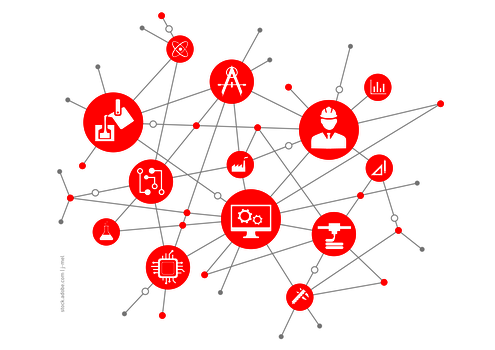Our everyday life is increasingly characterized by intelligent technical systems and products. The development of these complex systems is a joint project of different disciplines. Systems engineering (SE) is becoming increasingly relevant in the course of the digitalization of various industries and is being used more and more. What does systems engineering look like in the digital age? In the eighth ECDF Industry Forum on December 9, 2021 - this edition again digital - almost 50 participants discussed the use of systems engineering. The event started with a welcome by Prof. Dr. Odej Kao, speaker of the Einstein Center Digital Future (ECDF) and moderator Tim Kawalun. Afterwards, Prof. Dr.-Ing. Lydia Kaiser, ECDF Professor for Digital Engineering 4.0 at ECDF and TU Berlin, introduced the participants to the topic. In this conceptual context, engineering does not stand for engineering in the classical sense, but in systems engineering means all activities that occur from the successful realization, through operation, to the subsequent disposal of systems. This holistic approach makes use of systemic principles, scientific knowledge, technologies and related management methods.
SE is not new, but has been used for decades in large-scale projects, for example in the aerospace industry. Aerospace projects are characterized by high uncertainty, transdisciplinarity and complexity. Industrial companies today are confronted with the same or similar factors due to the progress of digitalization. "While products used to be mainly mechanical - for example the car or even prostheses - today's functions are increasingly realized by software. The application of artificial intelligence will make systems even more powerful and complex. This means that development from the perspective of a single discipline is no longer possible. Methods from individual disciplines are also insufficient, as they do not take into account how they work together - this is where SE comes in: "When the arms race was about conquering space, systems engineering experienced a surge in application," explains Lydia Kaiser. The novel collaboration was triggered by a problem that was then solved systemically and systematically with a combination of systems design and project management. "What is often referred to as Rocket Science is so important for today's companies because they basically want to conquer their space through digitization. Of course, that looks different depending on the issue, with different stakeholders such as the customer, sales, engineering, software development or IT security. What is important in designing the solution is systems thinking, a competence with which we understand complex phenomena as a whole, as a system," says Kaiser.
For companies, this means that internal transformation takes place holistically and that the interaction of organization, people and technology must be understood as a system. Fresenius Medical Care started this process many years ago. At the Industry Forum, Nico Michels, Senior Vice President Engineering Systems at Fresenius Medical Care, shared his experiences: "The focus of such a process is collaboration and subsequent implementation. At Fresenius Medical Care, we have a concept that provides for various digital tools, including a Digital Twin, the use of a Digital Thread and Engineering Intelligence, a mixture of Model-Based Systems Engineering and Artificial Intelligence," Michels explained. "Above all, this requires structures without large hierarchies and a certain mindset that leads to working in a practical way, empowering employees and making them feel secure enough to work transparently. It is also important to change yourself and develop the system further." Fabian Ahrendts, Head of Group Systems Engineering at the Volkswagen Group, also emphasized that a change in thinking must take place: "We are talking about a mega-transformation here - the organization of new vehicle projects looks very different today than it did in the past. For this alone, we are moving tens of thousands of developers." Carolin Rubner from Siemens AG sees a successful transformation primarily in the agile work of all development departments. There are positive experiences in the software departments.
In the subsequent discussion, experts again clearly emphasized that specific technical skills are very important but should always be combined with systems thinking. Prof. Dr. Rainer Stark, Head of the Department of Industrial Information Technology at the Technical University of Berlin, sees a need to catch up in the training of a new generation of engineers: "There are many tools for the individual digital modeling aspects of systems engineering. However, the methodological core of systems engineering must first be placed on a more stable footing at the scientific institutions of the universities. Combined with agile approaches and holistic processes, it will then become a robust systems engineering competency. The holistic implementation in industrial practice remains challenging enough even then!"
The participants from industry and academia made the potential of SE clear. SE will help in the digital age to bring together actors from different disciplines and to develop solutions holistically and transdisciplinarily. Here, not only products can be seen as a system, but also the value creation itself. The Digital Engineering 4.0 department is currently researching how SE approaches can support the design of engineering within companies. If you are interested in this topic, we would be happy to put you in touch with us.
News in detail
Recap: Industry Forum Systems Engineering

© stock.adobe.com l j-mel
